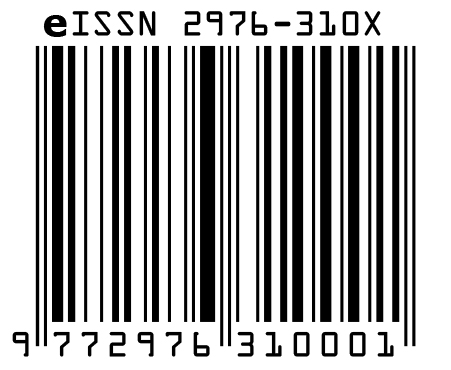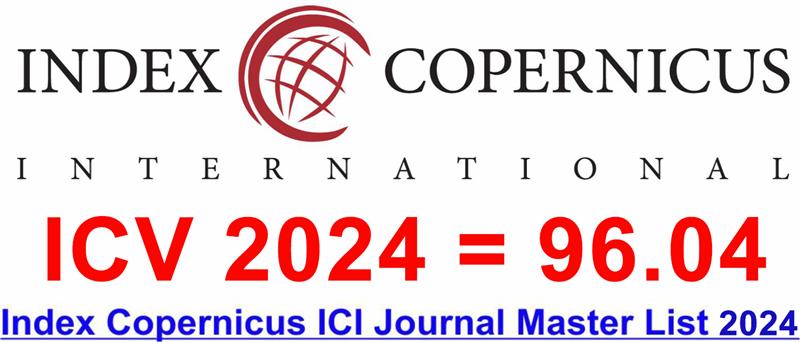A Comprehensive Review on Graduate Level Students Motivation in Online Learning Environments
DOI:
https://doi.org/10.60072/ijeissah.2025.v3i03.006Abstract
The application of online learning has seen a noticeable increase in renown as a teaching technique, offering students all around the world more flexibility and accessibility. However, in the setting of this digital environment, maintaining student motivation is a considerable difficulty. The purpose of this research is to better understand student motivation in online education. Looks at several theoretical frameworks. Among the several theoretical frameworks discussed for this study are Self-determination theory, social cognitive theory, expectation-value theory, goal-setting theory, and flow theory. Additionally, this study investigated the barriers and constraints that may obstruct students' engagement and zeal as well as the numerous elements that affect student motivation. In order to address these issues, a number of effective strategies are presented, the goal of which is to improve student motivation in the setting of online education. This study emphasizes how crucial it is to foster an enthusiastic and involved learner community to enable fruitful and fulfilling online learning opportunities.
Keywords:
Digital Environments, E-Learning, Graduate Level, Online Learning, Students MotivationReferences
Acuña, M. H., Ogilvie, K. W., Baker, D. N., Curtis, S. A., Fairfield, D. H., & Mish, W. H. (1995). The global geospace science program and its investigations. Space Science Reviews, 71(1), 5-21.
DOI: https://doi.org/10.1007/BF00751323
Adhani, L. K., & Remijn, G. B. (2023, October). A survey on external distractions affecting students’ study performance during online learning. In 3rd International Conference on Community Engagement and Education for Sustainable Development (pp. 178-184).
DOI: https://doi.org/10.21467/proceedings.151.26
Alahmari, A. (2021). Graduate students' intrinsic motivation in fully online courses.
DOI: https://doi.org/10.54014/0FAF-EYFY
Amornrit, P., Bootchuy, P., & Smitananda, P. (2025). Enhancing Digital Creativity in Higher Education through Gamified Distance Learning Systems. Journal of Education and Learning, 14(3), 296-305.
DOI: https://doi.org/10.5539/jel.v14n3p296
Amri, Z. (2024). Self-regulated learning and academic achievement in the EFL classroom. Journal of English Language Teaching and Applied Linguistics, 6(1), 87-99.
DOI: https://doi.org/10.32996/jeltal.2024.6.1.11
Australian health sciences students’ perceptions of online vs. (n.d.).
Clark, R. C., & Mayer, R. E. (2023). E-learning and the science of instruction: Proven guidelines for consumers and designers of multimedia learning. john Wiley & sons.
Kipkoech, F., & Kerre, B. (2024). An Assessment of the Trainers' Competence in Implementing Online Teaching and Learning in TVET: A Case of Selected Institutions, in Nandi County. Africa Journal of Technical and Vocational Education and Training, 9(1), 108-117.
Curtain, R. (2002). Online learning: How cost-effective. Online delivery in the vocational education and training sector: Improving cost effectiveness.
Davarpanah, S. H., Barat Dastjerdi, N., & Shirzad, Z. (2023). Student teachers’ experiences of online education during the COVID-19 pandemic: Challenges and opportunities. Journal of Higher Education Policy And Leadership Studies, 4(2), 129-135. DOI: https://doi.org/10.61186/johepal.4.2.129
De Paepe, L., Zhu, C., & Depryck, K. (2018). Online Dutch L2 learning in adult education: educators’ and providers’ viewpoints on needs, advantages and disadvantages. Open Learning: The Journal of Open, Distance and e-Learning, 33(1), 18-33. DOI: https://doi.org/10.1080/02680513.2017.1414586
Deci, E. L., & Ryan, R. M. (2000). The" what" and" why" of goal pursuits: Human needs and the self-determination of behavior. Psychological inquiry, 11(4), 227-268.
DOI: https://doi.org/10.1207/S15327965PLI1104_01
Dicheva, D., Dichev, C., Agre, G., & Angelova, G. (2015). Gamification in education: A systematic mapping study. Journal of educational technology & society, 18(3), 75-88.
https://www.researchgate.net/publication/270273830
Enwereji, P. C., & Van Rooyen, A. (2025). Exploring the barriers to online student learning support services: A review. South African Journal of Higher Education, 39(1), 69-93.
DOI: https://doi.org/10.20853/39-1-5116
Grah, B., & Penger, S. (2022). Focus, Time Management and Personal Energy of Students during Online Education. ENTRENOVA-ENTerprise REsearch InNOVAtion, 8(1), 127-137.
DOI: https://doi.org/10.54820/entrenova-2022-0012
Gustiani, S. (2020). Students’ motivation in online learning during COVID-19 pandemic era: A case study. Holistics (Hospitality and Linguistics): Jurnal Ilmiah Bahasa Inggris, 12(2).
Ip, S. W., & To, W. M. (2025). Effects of online learning readiness and online self-regulated English learning on satisfaction with online English learning experience during the COVID-19 pandemic. Behavioral Sciences, 15(1), 93. DOI: https://doi.org/10.3390/bs15010093
Kamraju, M., Krishnaiah, J., Durgesham, G., Shaba, N., Begum, S. A., Fatima, N., & Madhuri, Y. (2024). Exploring the impact of online education on higher education. ASEAN Journal of Educational Research and Technology, 3(1), 27-36.
Katete, G. (2024). Digital teaching and learning: trust and intuition in universities in Kenya.
DOI: https://doi.org/10.5772/intechopen.1007059
Klevetova, T., Komissarova, S., & Popov, K. (2021). Online learning technologies as a modern direction of learning in communities. In SHS Web of Conferences (Vol. 98, p. 05029). EDP Sciences.
DOI: https://doi.org/10.1051/shsconf/20219805029
Kumar, C., Rangappa, K. B., Suchitra, S., & Gowda, H. (2024). Digital distractions during blended learning and its negative repercussions: an empirical analysis. Asian Association of Open Universities Journal, 19(1), 1-18. DOI: https://doi.org/10.1108/AAOUJ-02-2023-0024
Lange, C. (2024). Examining situational interest and its relationship with self-efficacy in asynchronous and synchronous video lectures. International Journal of Educational Technology in Higher Education, 21(1), 1. DOI: https://doi.org/10.1186/s41239-023-00431-4
Lee, Y., & Choi, J. (2011). A review of online course dropout research: Implications for practice and future research. Educational Technology Research and Development, 59(5), 593-618.
DOI: https://doi.org/10.1007/s11423-010-9177-y
Lee, Y. H., & Wang, Y. F. (2024). Online Learning for Older Adults: Teachers’ Transition During the Pandemic in Taiwan. SN Computer Science, 5(5), 442. DOI: https://doi.org/10.1007/s42979-024-02843-z
Liang, R. Y. H., & Chen, D. T. (2012). Online learning: Trends, potential and challenges. Creative Education. DOI: https://doi.org/10.4236/ce.2012.38195
Lestari, L. H. (2023). Investigating Students’ Motivation in Learning Speaking through Online Learning. Journal of Digital Learning and Distance Education, 1(9), 338-345.
DOI: https://doi.org/10.56778/jdlde.v1i9.75
Maune, A. (2023). Adoption and use of eLearning platforms by universities in developing countries: Evidence from Zimbabwe. Cogent Education, 10(2), 2287905.
DOI: https://doi.org/10.1080/2331186X.2023.2287905
Means, B., Toyama, Y., Murphy, R., & Baki, M. (2013). The effectiveness of online and blended learning: A meta-analysis of the empirical literature. Teachers college record, 115(3), 1-47.
DOI: https://doi.org/10.1177/016146811311500307
Meşe, E., & Sevilen, Ç. (2021). Factors influencing EFL students’ motivation in online learning: A qualitative case study. Journal of Educational Technology and Online Learning, 4(1), 11-22.
DOI: https://doi.org/10.31681/jetol.817680
Purwaamijaya, I. M., Masri, R. M., & Purwaamijaya, B. M. (2021, February). The effectiveness of online learning methods during the Covid-19 pandemic. In 6th UPI International Conference on TVET 2020 (TVET 2020) (pp. 89-92). Atlantis Press. DOI:10.2991/assehr.k.210203.093
Najjar, N., Rouphael, M., Bitar, T., & Hleihel, W. (2025, February). The rise and drop of online learning: adaptability and future prospects. In Frontiers in Education (Vol. 10, p. 1522905). Frontiers Media SA.
DOI: https://doi.org/10.3389/feduc.2025.1522905
Pan, X. (2023). Online learning environments, learners’ empowerment, and learning behavioral engagement: The mediating role of learning motivation. Sage Open, 13(4), 21582440231205098.
DOI: https://doi.org/10.1177/21582440231205098
Pei, B. (2025). Understanding Students’ Learning Motivations in Online Learning Settings: From a Quantitative Perspective.
DOI: https://doi.org/10.5772/intechopen.1009790
Picciano, A. G. (2021). Theories and frameworks for online education. A guide to administering distance learning, 21(3), 166-190.
DOI: https://doi.org/10.24059/olj.v21i3.1225
Piller, Y. (2014). Self-Regulated Learning Online: Motivation The Review of the Literature..
DOI: https://doi.org/10.13140/RG.2.1.3685.5208
Puja, I. B. P. (2024). The mediating role of online learning motivation in the influence of service quality, social media usage, and pedagogical teaching competence of teachers on student learning satisfaction. Cogent Social Sciences, 10(1), 2396934.
DOI: https://doi.org/10.1080/23311886.2024.2396934
Richardson, J. C., Maeda, Y., Lv, J., & Caskurlu, S. (2017). Social presence in relation to students' satisfaction and learning in the online environment: A meta-analysis. Computers in Human Behavior, 71, 402-417. DOI: https://doi.org/10.1016/J.CHB.2017.02.001
Saranpuetti, C., Khajornchaikul, P., & Pobkeeree, V. (2022). ONLINE EDUCATION DURING THE CORONAVIRUS PANDEMIC: ADVANTAGES AND DISADVANTAGES IN HIGHER EDUCATION. Higher Education, 10(2), 273-279. DOI: https://doi.org/10.20473/jaki.v10i2.2022.273-279
Seed Ahmed, M., Soltani, A., Zahra, D., Allouch, S., Al Saady, R. M., Nasr, A., ... & Ali, K. (2025). Remote online learning reimagined: perceptions and experiences of medical students in a post-pandemic world. BMC Medical Education, 25(1), 215. DOI: https://doi.org/10.1186/s12909-025-06815-6
Setiyani, Y., Irfan, M., & Setiana, D. S. (2022). The Effect of Online Learning on Students' Mathematics Learning Motivation. Jurnal Inovasi Pembelajaran Matematika, 1(1), 1-8.
DOI: https://doi.org/10.56587/jipm.v1i1.1
Shen, J., Zhang, S., Sun, D., Ge, R., Chen, S., Fang, J., & An, Q. (2025). Comparison of face-to-face teaching and online teaching in neurosurgery education for medical students. BMC Medical Education, 25(1), 232. DOI: https://doi.org/10.1186/s12909-025-06817-4
Soffer, T., Kahan, T., & Nachmias, R. (2019). Patterns of students’ utilization of flexibility in online academic courses and their relation to course achievement. International Review of Research in Open and Distributed Learning, 20(3). DOI: https://doi.org/10.19173/irrodl.v20i4.3949
Strom, P. S., Strom, R. D., Sindel-Arrington, T., & Rude, R. V. (2023). Student Attention and Distraction in Community College. Journal of Educational and Developmental Psychology, 13(1), 41.
DOI: https://doi.org/10.5539/jedp.v13n1p41
Abu-Bajeh, Z. Y., & Abbas, R. A. (2021). Justifications for using interactive online education. International Journal of Engineering & Technology, 10(1), 8-13.
DOI: https://doi.org/10.14419/ijet.v10i1.31251
Zavyalova, K. (2020). Unlocking students’ motivation in the blended higher education classroom: Lecturers’ perspectives. E-Learning and Digital Media, 17(5), 425-441.
























